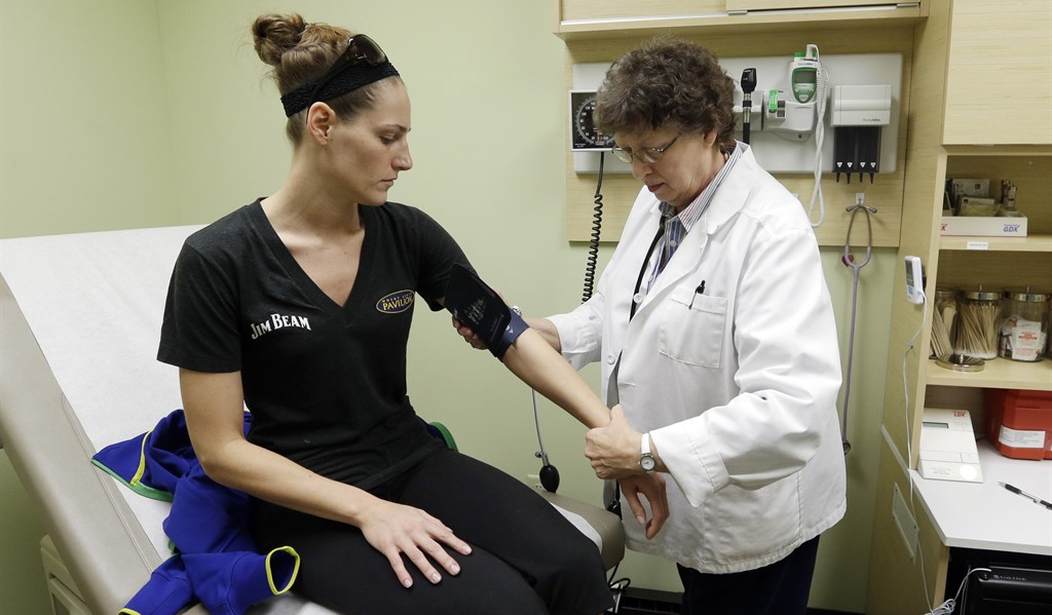Last year, Congress passed the Medicare Access and CHIP Reauthorization Act (MACRA) under the pretense of eliminating a poorly conceived accounting gimmick known as the Sustainable Growth Rate (SGR). This bureaucratic mistake was part of the Balanced Budget Amendment of 1997 and was designed to keep Medicare spending in check. It was never enforced, and the cuts to Medicare reimbursement to doctors required by this law were delayed at the end of each year by Congress in what was termed the “doc fix”. There was considerable pressure by physician groups to end this and bipartisan support for it in Congress.
There was euphoria within the physician community pertaining to the end of the SGR, but few paid attention to the remaining 240 pages of the 260 page bill which focused on the creation of a new Medicare reimbursement plan for physicians. Cost and access, the reasons for the creation of the Affordable Care Act, were no longer the metrics because the ACA (Obamacare) failed miserably in addressing these issues, and in fact made them worse. Instead, the focus was changed in MACRA to “quality and value”. In doing so, the problems of a dysfunctional healthcare system were shifted away from those parties responsible; the 3rd party payers, government and private insurance, and transferred to physicians who could easily be made into scapegoats. Cost and access can easily be measured and failure assigned, but quality and value are difficult if not impossible to measure.
So an additional 962 pages of regulations were created which regulate physician behavior in ways that will forever change healthcare. Programs were devised with clever names that sound like a considerable amount of thought and research went into their creation, when in fact, none of these concepts have been proven, let alone tested, and the consequences are dire for physicians and for patients. One such new rule is the Quality Reporting Initiative which will cost $15 billion annually to collect data that doctors are being forced to provide without a single shred of evidence of any correlation with improved outcomes.
Recommended
The most pernicious aspect of MACRA is that it gives doctors a false choice-that they get to decide how they will be paid. They can either move into a system called an APM- alternative payment model or they can continue to be paid for what they do- fee for service in a system called Merit Based Incentive Payment System or MIPS. The latter program requires achieving certain milestones and benchmarks and pays doctors accordingly. The issue is that not everyone can win in this system, since it is budget neutral. Some doctors can achieve the maximum reimbursement which is a 9% bonus, while others will be penalized 9%- an 18% difference. The problem is that CMS has produced information that only physician groups with greater than 100 doctors has greater than a 50% chance of achieving a bonus. Groups of less than 9 doctors have an 87% likelihood of being penalized.
Small medical groups will be adversely affected. Not only will they make less money than they currently do, but they will have to absorb higher overhead costs to implement these programs. Most small groups will be unable to remain viable, and will be forced to sell their practice to large hospitals. This means the end of private practice, which is the ulterior motive of the federal government because they believe that doctor behavior is easier to control if they can be herded into larger groups.
The APMs pay doctors more because they are voluntarily joining large healthcare delivery systems called Accountable Care Organizations- an unproven concept but one which the Federal Government is pushing because it fulfills the long term strategy of consolidating healthcare in an attempt to better control it.
For patients, the demise of private practice leaves very little choice. It further distances patients from their doctors, by putting them in large institutions which are more difficult for most patients to navigate. It also changes the dynamic of the doctor-patient relationship. When doctors are employed by large institutions, they are answerable first to their employer for whom they work; they do not necessarily work for their patients any longer.
The most worrisome thing in MACRA for patients is that it puts their medical information at risk. The section called Advancing Care grants the Office of the National Coordinator complete access to the protected health records of every patient under the premise of quality monitoring, regardless of whether or not they are receiving government insurance coverage. This is a direct violation of HIPAA and the Fourth Amendment to the U.S. Constitution. There is no possible way that small medical practices will be able to encrypt and protect this data, when large corporations and even the government have been victims of cyber attacks.
The MACRA rules have not been finalized. Tomorrow ends the commentary period on their website. Everyone should go to https://www.regulations.gov/

























Join the conversation as a VIP Member